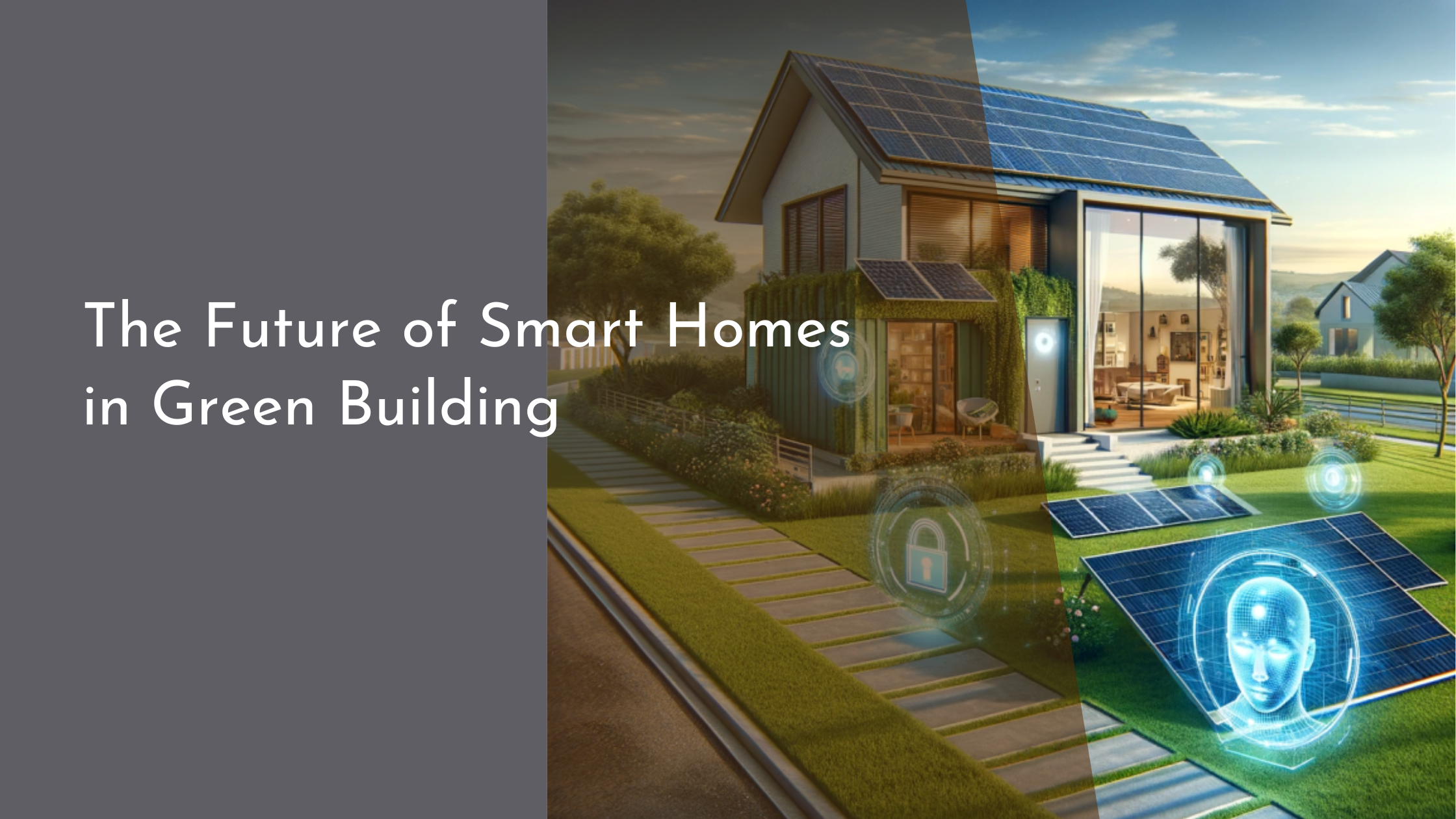The Future of Smart Homes in Green Building
The intersection of technology and sustainability is paving the way for a new era in residential construction: smart green homes. As environmental consciousness becomes more prevalent, the integration of smart technology with green building practices offers an exciting opportunity to enhance both the efficiency and comfort of our living spaces. This article explores the promising future of smart homes in green building, focusing on the seamless integration of smart technologies, the role of renewable energy, and the rise of innovative appliances designed for sustainable living.
Integrating Smart Tech in Eco-Friendly Designs
The fusion of smart technology with eco-friendly building designs is revolutionizing the construction industry. Architects and builders are now incorporating intelligent systems that optimize energy use, improve indoor air quality, and minimize waste. These smart systems are designed to work in harmony with sustainable materials, ensuring that homes are not only energy-efficient but also built with minimal environmental impact. Smart thermostats, automated lighting, and adaptive climate control systems are just a few examples of how technology can enhance the sustainability of residential spaces.
Moreover, the integration of smart technology extends beyond individual homes to entire communities. Smart grids and connected neighborhoods are emerging as viable solutions to some of the most pressing environmental challenges. By sharing resources and data, these smart communities can optimize renewable energy use, reduce carbon footprints, and promote sustainable living practices. This holistic approach to green building signifies a shift towards more resilient and interconnected living environments, where technology and sustainability are intertwined.
Renewable Energy: Powering Tomorrow’s Smart Homes
At the heart of the smart green home movement is the utilization of renewable energy sources. Solar panels, wind turbines, and geothermal systems are becoming increasingly popular as homeowners seek to reduce their reliance on fossil fuels. These renewable energy solutions not only decrease the carbon footprint of homes but also empower homeowners to become energy independent. With advancements in battery storage technology, surplus energy can be stored for later use, ensuring that smart homes remain powered even during peak demand periods.
In addition to on-site renewable energy generation, smart homes are also tapping into regional energy networks. By connecting with local green energy providers, smart homes can draw from a larger pool of renewable resources, further enhancing their sustainability. Smart meters and energy management systems allow homeowners to monitor and optimize their energy usage in real time, leading to more efficient and environmentally friendly living spaces. As renewable energy technologies continue to evolve, they will play an increasingly crucial role in powering the smart homes of the future.
Innovative Appliances for Sustainable Living
The modern smart home is equipped with a range of innovative appliances designed to support sustainable living. Smart refrigerators, washing machines, and dishwashers are now equipped with sensors and AI capabilities that optimize their operations, reducing water and energy consumption. These appliances can be programmed to run during off-peak hours, further decreasing energy demand and costs. Additionally, they often include features that allow for remote monitoring and control, providing homeowners with greater flexibility and convenience.
Beyond traditional household appliances, smart homes are embracing new technologies that promote sustainability. For instance, water conservation systems that utilize smart irrigation controllers and leak detection sensors can significantly reduce water usage. Similarly, waste management systems equipped with smart sorting capabilities help minimize landfill contributions and promote recycling. As these technologies become more mainstream, they will continue to drive the adoption of sustainable practices within smart homes, contributing to a more eco-conscious lifestyle.
Conclusion: A Bright Future for Smart Green Homes
The convergence of smart technology and green building practices offers a promising vision for the future of residential living. By integrating advanced technologies with sustainable design principles, smart green homes are setting new standards for energy efficiency, comfort, and environmental stewardship. As these homes become more prevalent, they are likely to influence broader societal changes, encouraging more sustainable behaviors and reducing overall environmental impact.
In conclusion, the future of smart homes in green building is bright, filled with exciting innovations and opportunities for sustainable development. With the continued advancement of smart technologies and renewable energy solutions, homeowners can look forward to a more efficient, resilient, and environmentally friendly living experience. As we embrace this future, we move closer to a world where our homes not only meet our needs but also align with our values and aspirations for a sustainable planet.

